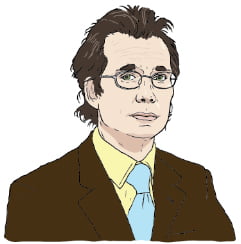
- This event has passed.
Comparative Media Insights: “Art of the Impossible: Utopia, Imagination, and Critical Media Practice”
Monday, December 7, 2009 @ 5:15 pm EST

In an economy of informational abundance, does the traditional truth-revealing role of critical media practice still have any political relevance? Or are there other, perhaps more politically potent, ways of thinking about the liberatory possibilities of media? By considering a range of examples, from Thomas More’s 16th century Utopia to 21st century political art, we will explore the possibilities and pitfalls of mediated utopias as a means of revitalizing the critical practice of communications. Of particular interest are impossible utopias, “no-places” whose unrealizability is inscribed in their depiction. For it is through the encounter with their very impossibility that conditions for new critique and new imagination may be created.
Stephen Duncombe is an Associate Professor at the Gallatin School of New York University where he teaches the history and politics of media. He is the author of Dream: Re-Imagining Progressive Politics in an Age of Fantasy and Notes From Underground: Zines and the Politics of Underground Culture, the editor of the Cultural Resistance Reader, and co-author of The Bobbed Haired Bandit: A True Story of Crime and Celebrity in 1920’s New York. He also writes on the intersection of culture and politics for a range of scholarly and popular publications, from the cerebral, The Nation, to the prurient, Playboy. Duncombe is a life-long political activist, co-founding a community based advocacy group in the Lower East Side of Manhattan and working as an organizer for the NYC chapter of an international direct action group. Currently, he is a Research Associate at the Eyebeam Center for Art and Technology in New York City where he co-founded and organized “The College of Tactical Culture” and is engaged in an ongoing investigation into the efficacy of political art. He is currently working on a book on the art of propaganda during the New Deal.



